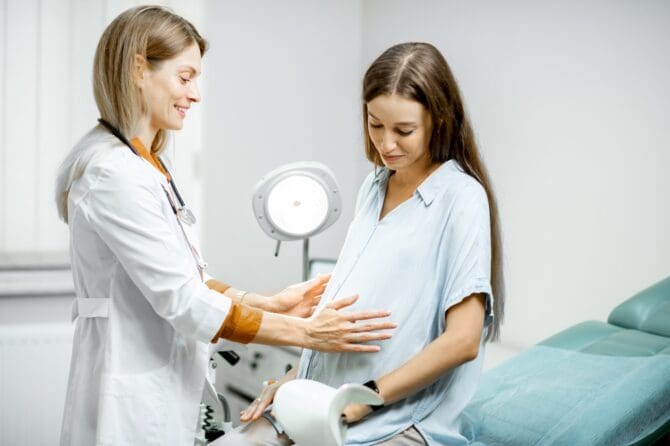There’s no need to worry if you start to experience urinary incontinence while you’re pregnant – it’s actually quite common! Bladder problems are one of the many possible side effects of pregnancy, and they can range from mild discomfort to severe pain. Some women experience them frequently, while others only have them occasionally. Most of the time, these issues will go away after you give birth. There are a chosen few who unfortunately continue to experience pain after they give birth. In this article, we will share with you how and what the many bladder problems during pregnancy are. Aside from that, we will also discuss bladder symptoms and some techniques for bladder cure and relief.
What are some of the forms of incontinence that can be experienced during pregnancy? Pregnant women, even those who have just given birth, are prone to stress incontinence. Stress incontinence is defined as the loss of urine which is caused by the increased pressure on the bladder. When stress incontinence happens, the bladder finds it hard to function at its best and hold urine. In order to combat this, some things pregnant women can do is to try and limit their caffeine intake, invest in some good maternity pads, and do pelvic floor exercises regularly.
Overactive bladder during pregnancy is unfortunately a common occurrence and can be caused by a number of things such as the extra pressure on your bladder from your growing uterus or changes in your hormones. When you have an overactive bladder, you’ll notice that you have to urinate more frequently than usual and sometimes even when you don’t feel the urge. This is because the muscles around your urethra are contracting uncontrollably and don’t give you the chance to hold it in like they normally would. While this doesn’t pose any serious health risks, it can be extremely uncomfortable and inconvenient, especially when you’re trying to get a good night’s sleep! These muscles are the pelvic floor muscles, and they are responsible for urine continence. A strong bladder contraction can sometimes override the pelvic floor muscles and cause urine leakage. After pregnancy, some women may still experience bladder problems. This is because during childbirth, the pelvic floor muscles can weaken and this is one of the causes of an overactive bladder. Pregnancy and childbirth can contribute to bladder control problems for several reasons:
Episiotomy This is a cut or tear in your pelvic floor muscle that can happen when you’re delivering your baby. Sometimes, a cut is necessary and happens naturally when giving birth in order to allow the baby to come out more easily.
Nerve damage If the nerves which control your bladder are damaged, it may not function properly.
Movement of the bladder Your urethra and your bladder can both move during pregnancy. This may cause some urinary incontinence.
There are a few different treatments that can help with urinary incontinence during pregnancy. Some simple lifestyle changes, like avoiding caffeine and practicing pelvic floor exercises, can often be enough to make a big difference. If those don’t work, there are also medication options and even surgery in very rare cases.
It’s important to talk to your doctor about any urinary incontinence you’re experiencing during pregnancy, as it can be a sign of other issues like a UTI. But with the right treatment, it’s usually something that can be easily managed.
The good news is that you can take measures to avoid and treat bladder problems during pregnancy. Voiding and bladder training are two methods that can help you get relief from this issue. They can be done both during and after pregnancy, and don’t require any special equipment or expensive treatments – you can do them from the comfort of your own home.
To help you keep track of your urination patterns and avoid leaks in the future, use a chart to record the times you go to the bathroom. Doing this will give you an idea of your typical leaking pattern, which you can then use to plan bathroom breaks accordingly.
Bladder training is an easy process that involves gradually lengthening the time between each bathroom break. You can start by going to the bathroom only once every hour. Once you’ve established this routine, you can increase the interval to 90 minutes, and so on.
Don’t worry about bladder problems during pregnancy. As long as you stay informed and do what you need to do, everything will be fine.











